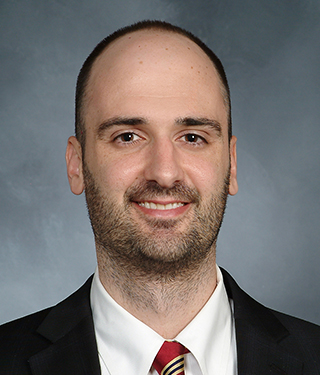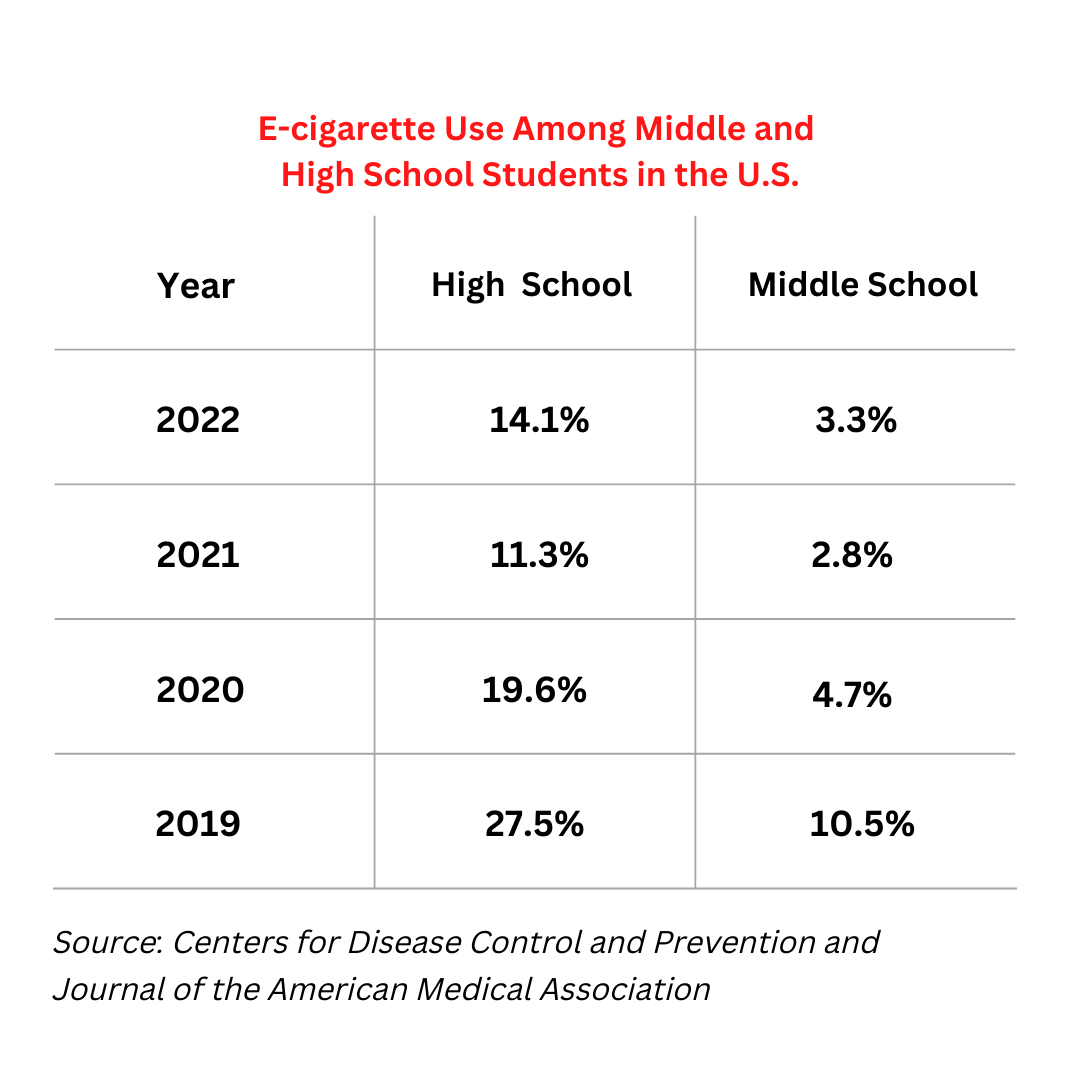E-cigarette Use Persists Among Youth, New Data Shows
About 2.5 million U.S. students in Grades 6 to 12 have reported vaping this year.


E-cigarettes, or vapes, have been the most commonly used tobacco product among middle and high school students since 2014, according to the Centers for Disease Control and Prevention (CDC). And while the U.S. Department of Health and Human Services has stated that these highly addictive vaping devices can harm adolescent brain development, use persists among youth.
A new report published in the CDC’s Morbidity and Mortality Weekly Report on October 6, based on data from January 2022 to May 2022, showed that 14.1% of high school students and 3.3% of middle school students in the U.S. were vaping, an increase from 2021 data. In a 30-day window for this year so far, 27.6% of students said they used e-cigarettes every day and 42.3 percent said they used them for 20 days or more.

Dr. Jonathan Avery
Dr. Jonathan Avery, an expert in addiction psychiatry at NewYork-Presbyterian/Weill Cornell Medical Center, said that experts anticipate an increase in e-cigarette use now that students are back in person at school full time.
“Some of the upticks now could be that students are around each other again,” says Dr. Avery, who is also the Stephen P. Tobin and Dr. Arnold M. Cooper Associate Professor in Consultation-Liaison Psychiatry at Weill Cornell Medicine. “They are back in their social environment, experimenting again, although thankfully not as much as pre-pandemic.”
In 2019, a study published in the Journal of the American Medical Association reported that 27.5% of students in high school and 10.5% percent in middle school were using
e-cigarettes, which was an all-time high. Numbers had steadily decreased since, and 2022 marks the first time that numbers have ticked back up.
This year’s results emphasize the continued need for the implementation of tobacco prevention and control strategies at the national, state, and local levels, and added regulation and enforcement from the Food and Drug Administration, according to the report.
For example, in June 2022, the FDA denied authorization to market JUUL products, an e-cigarette brand that 22% of students said they used in this year alone, according to the report. And in previous years, there have also been a myriad of public education campaigns to prevent e-cigarette use among youth.
Dr. Avery recommends that caregivers talk to children about the health impacts of e-cigarette use early on. “The current advice is to start talking to kids about substance use and mental health as early as age 8,” he says. “I think having open conversations is important and these topics should be safe to talk about as a family to help curb the stigma.”


